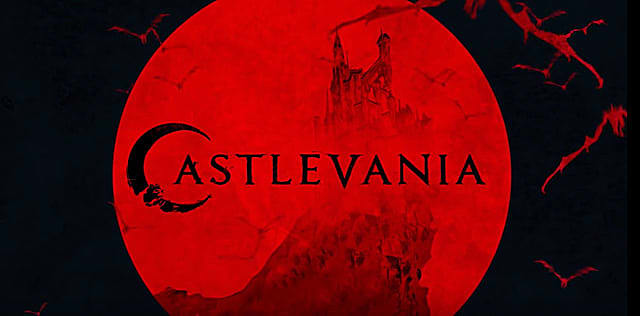

Since I saw it, I’ve been joking that Season 3 of Netflix’s Castlevania is, in its way, a truly ballsy move by its producers. Netflix is notorious for canceling shows after their third season, so naturally, Castlevania spends all 10 of its newest episodes building up to what promises to be an amazing Season 4. The final episode ought to be entitled “Try Shutting Us Down Now, Boys.”
In general, then, how you feel about this season of Castlevania will depend on one thing above all else: When you watch serial entertainment, do you prefer the journey or the destination?
Are you happy just spending time with characters you like — and would be okay if the whole show was just watching them bust on each other while they eat soup — or do you prefer a show that has a real sense of forward momentum towards its climax?
If you like the former, then Castlevania Season 3 is absolutely your jam. If you enjoy the latter, and I mostly fall into that camp, this season feels like a lot of setup for a payoff that’s not coming anytime soon.
The last couple of seasons of Castlevania, to be fair, have been mostly about the journey. I enjoyed the second season, but the single most apt criticism you can make of it is that a good two-thirds of its running time are chiefly about Trevor, Sypha, and Alucard snarking at each other in the Belmont library. It’s a long, winding road towards the final episodes, but when they arrive, they hit.
The big draw of the Dracula fight isn’t just the visuals, but the multiple layers of catharsis that go into it: In the end, it feels less like the heroes beat Dracula and more that they finally shocked him into committing suicide-by-Belmont. The action is undeniably amazing, but it wouldn’t be as satisfying without that emotional gut-punch, and that’s why you needed a lot of the build-up.
With Dracula dead, Castlevania’s third season ends up in uncharted waters. The series picks up a month after Dracula’s demise, and takes this opportunity to do a little character- and world-building, with four season-long arcs that never actually intersect.
Trevor and Sypha are now a couple, roaming the countryside as freelance monster hunters, while Alucard has withdrawn from the world, living an uncomfortable hermit’s life in the ruins of Dracula’s castle. Hector has been enslaved by Carmilla, the last of Dracula’s generals, and dragged back to her home in Styria; and Isaac is slowly making his way back across the world, gathering an army of monsters on a mission of revenge against Hector for Dracula’s death.
Each of the four arcs does build towards a sort of climax, but three of the four primarily feel like setup chapters for a greater story to be told later. The fourth, Alucard’s, is the clear loser here, as it feels like a textbook “filler arc,” which only serves to kill time and check in with our old vampire buddy.
Granted, filler arcs in other shows usually aren’t this harrowing – there’s a sequence near the end of the season in Alucard’s storyline that had me holding my breath in suspense – but it doesn’t end so much as it stops.
This is, to be fair, a problem I’ve had with a fair amount of Warren Ellis’ work. Ellis, who has a list of British and American comics work as long as your arm, is back as the solo writer on Castlevania’s third season, and his name on the credits is half of why I checked out the series to begin with.
While much of his script is as barbed and clever as the rest of the series has been, there’s a certain thematic bleakness to the third season of Castlevania in particular that, speaking as a fan of Ellis’ from way back, embraces some of his worst qualities as a writer.
Particularly in the last couple of episodes of Season 3, the series seems to relish in a sort of inescapable darkness that wasn’t there in the first two seasons. If the fight against Dracula was about saving the world, then Season 3 asks the question — throughout all four of its central arcs — of whether the world was worth saving to begin with, and it’s making a pretty strong argument that the answer is “no.”
Again, to be fair, this was also how the first season worked. It was all set up for the second season, which in turn, was all set up for its last couple of episodes. If Castlevania does get a fourth season, to pay off on the narrative threads that Ellis is carefully laying down, then it has every chance of being excellent… or at least, for being entertaining for eight or nine episodes before turning every dial to eleven for its climax.
For now, though, I can’t help but be a little annoyed by an entire season that’s effectively spinning its wheels. Very little of Trevor and Sypha’s story feels like it’s going to pay off later, and Alucard’s could be omitted entirely without an issue. Hector is mostly a non-entity, there to watch on the audience’s behalf as the script establishes a new, dynamic council of villains for next season, and you can probably see where his arc is going from very early on.
Isaac, on the other hand, is easily the star of the show. Buoyed by a standout performance by Adetokumboh M'Cormack, who does a great job with conveying complicated reactions with relatively subtle vocal cues, Isaac’s arc is by turns challenging, fascinating, and revelatory. If there’s a single must-see scene this season, it’s Isaac’s campfire conversation in Episode 6, which is easily in the top three single creepiest things in the entirety of the series to date.
I will say that the series is at least trying new things here. The joke going around is that thanks to some unexpected sex scenes in the last episodes, this is the horniest the Castlevania franchise has ever been, which is a pretty fair statement; I’d also go so far as to say that this is the horniest thing that Warren Ellis has written in years. (I’m not even sure what the next work in line would be. Maybe Vivek's sex montage in Injection?)
By the same token, the whole season feels like it’s a deliberate attempt to lay down some groundwork for the future. It expands the series' explored world, going as far away as Japan, and teases a few interesting details about the particular type of vampires that inhabit this universe.
It even brings up a couple of potential justifications for the strange anachronisms — finding modern instant noodles in 18th-century Europe, or wielding a Gatling gun in 1479 — that have become a series trademark. As is Ellis' style, both of the explanations he offers are rich enough concepts that you could end up building a show just around them.
At the end of the day, though, Season 3 of Castlevania left me feeling unsatisfied. It’s the first half of something that could end up being good, but thanks to animation scheduling, the payoff isn’t coming for at least a year. I also found the season's ending too depressing by half, particularly given a couple of sudden swerves in the last couple of episodes.
It's not a waste of time, and I know a fair number of people who really enjoyed Castlevania's newest season. I get the feeling that if and when I see a Season 4, it'll make me appreciate Season 3 a little more for what it's building here. For right now, though, I'm lukewarm on it.
To frame it another way, it's a tough feeling to put into numbers. If you're really feeling persnickety, I'd probably rate Alucard's arc as a 5, Trevor and Sypha's as 8s, Isaac's as a 9, and Hector's Big Vampire Adventure as a 7.
I'd just as soon scribble out the entire rating scale with a black marker and write, "It's Complicated," in the margin.
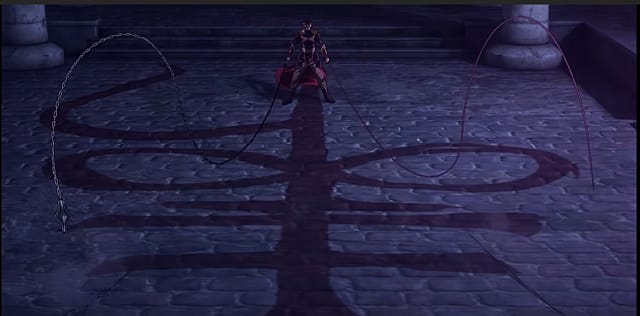
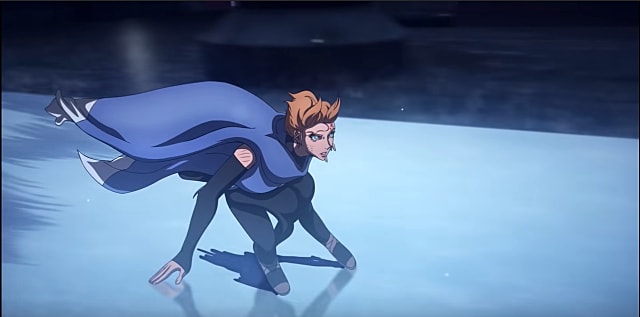
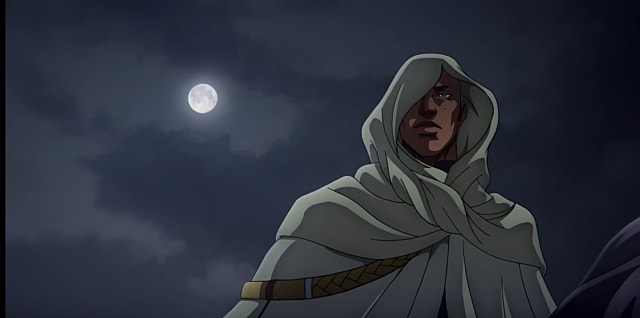
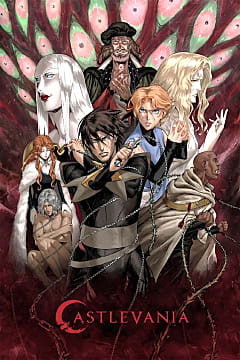
0 comments:
Post a Comment